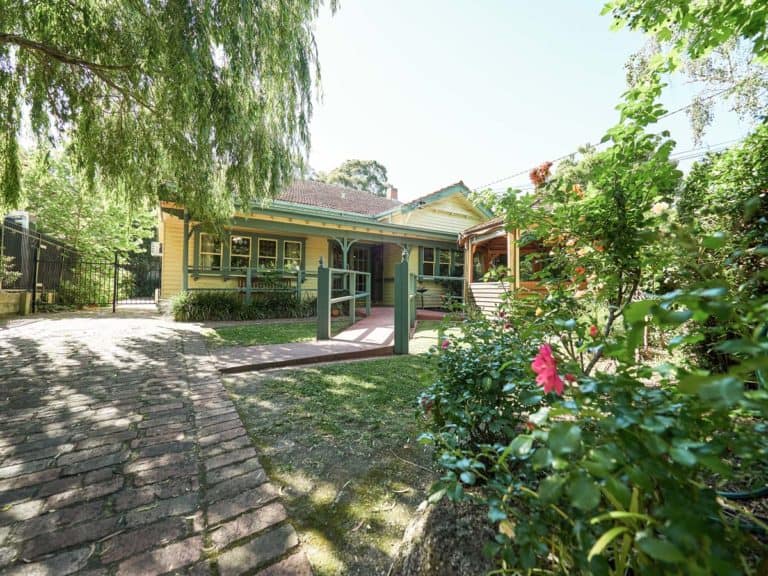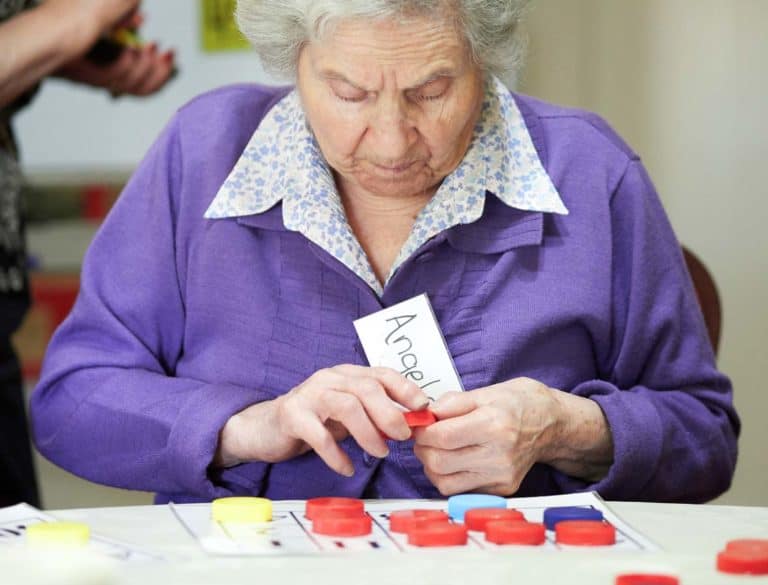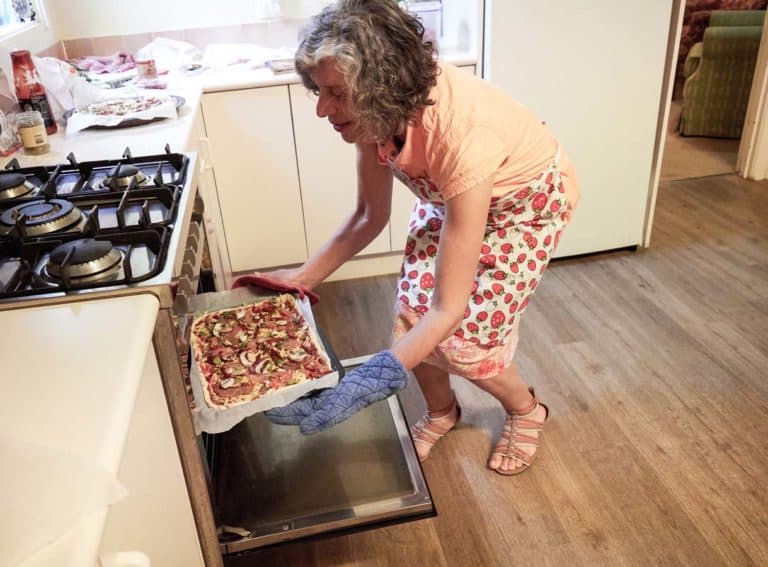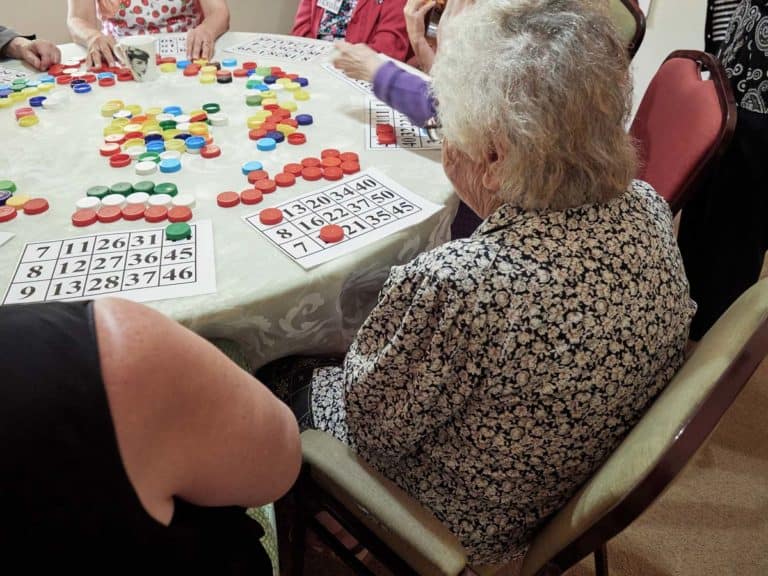An estimated 425,000 people in Australia are currently living with dementia and the disease will touch every Australian in some way.
Dementia is an umbrella term to describe over 100 different neurological conditions, including Alzheimers, of which the major symptom is a global decline in brain function. There is currently no cure, meaning care is essential.
While research into possible cures and treatments continues, the most pressing matter at hand is to help carers, volunteers, family members and the broader community to learn about dementia as a disease, understand how those living with the disease are experiencing life, and how they can be cared for in comfort.
How do we better understand those with Dementia?
BASScare recently ran a comprehensive training session for our volunteers who work with those living with dementia.
The purpose of this training session was to encourage professional growth and share experiences, and some of the insights were highly valuable, especially for the many Australians whose lives are touched by dementia.
Experiences of those living with Dementia
Dementia is a complex set of diseases that have a major impact on communication and behaviour, and our responses to that behaviour can make a substantial difference to a person’s day.
- At the heart of it, effective communication is key.
- How someone living with dementia speaks and expresses themselves can change, as the ‘filter’ that person has maintained throughout their lifetime is often gone.
- It’s important to not be offended or take conversations personally.
- It helps to maintain a person’s roles in their family and community where possible, and respect that they have a life and lived experiences. This can be as simple as facilitating them to hold a handbag or wallet, and feel in charge of their finances, even if they’re not. Reinforcing their roles in their family and community is of great comfort.
- Maintain their skills and independence where possible, and assist – but not take over – where needed. An example of this is arranging Meals on Wheels when someone can still cook. Why this may seem like a helpful step, this can cost someone with dementia the ability to cook because they stop using this skill.
Physical impacts of Dementia
The parietal lobes in the brain manage sensory hearing, and these can be affected by dementia, which means sense like hearing, sight, touch, smell, and even hot and cold are not being processed. The loss of these senses contribute to a wide range of challenges for carers and loved ones.
- A person may drink something that’s too hot for them, and then not understand where the burn came from.
- A person with dementia may be unable to get the shower temperature right and be at risk of burns.
- Auditory processing and language comprehension – both in and out – can be affected, as can reading and writing.
- This also applies to an inability to understand notes, coins and financial transactions.
Communication is key. If you can spend the time to understand the person, and relearn to communicate with them in a way they can process, you may be able to re-open these communication channels.
For example, we do see instances where someone wants to go to the toilet, they can feel they need to go, but they can’t remember how to get up or where the toilet is. The may then be viewed as incontinent when they’re actually not, they just can’t communicate their needs or remember what to do.
If you’re able to re-establish communication in different forms to cater for these sensory brain changes, this can make a big difference to the comfort of the person living with dementia, as well as yourself.
Learning to communicate and provide support
Our carers, staff and volunteers have a wealth of experience they can pass on to family and community members whose lives are touched by dementia.
- Focus on what they can do. Fill in the gaps for them. Accept them. Include them where you can.
- We can’t change the person with dementia, but you can change your response.
- Empathy and patience is key. Make the most of the moment, use your knowledge about them, and put yourself in their shoes.
- Try different ways to communicate. People living with dementia feel emotions, and remember tone of voice, more than the actual words said. Shouting doesn’t help them to understand.
- You may need to put on your detective hat and think ‘what’s really going on here?’ Understand what this person is trying to do and help them. For example, they may be complaining about the cold because the air-conditioning is turned way up, however they may not have the skill to know what an air-con unit is or what a remote control is, even if it’s in their lap.
At BASScare, we do often see – and understand – that having a loved one with dementia can be rife with challenges and frustration. We do hear ‘There’s no point in seeing mum or dad anymore because they don’t know us’.
We want to share that they do know. Memory damage is a complex thing, and memories can come and go. Those with dementia do experience emotion and memories, and there’s still something in there. Sometimes it just can’t find its way out in the moment.
There are also some R’s that can be very helpful if you love, or are caring for, someone with dementia. Remain calm. Respond to feelings. Reassure the person. Remove yourself momentarily if appropriate.
BASScare cares for those living with Dementia
BASScare is an organisation that has created a range of care options for our clients, and our team are dementia care experts.
Maranoa House [https://www.basscare.org.au/service/maranoa-house-dementia-day-centre/] Dementia Day Centre offers a range of programs that are provided in a welcoming, secure and homely environment, offering an invaluable respite option for carers.
Faversham House [https://www.basscare.org.au/service/faversham-house-aged-care-facility/] Aged Care Facility provides full accomodation and respite services in a delightful garden setting, and has a dedicated Dementia Unit.
We currently have spaces available in Faversham House and in Maranoa’s Italian Program subject to an assessment.
BASScare provides a wide range of services for Dementia clients, so please get in touch with us [https://www.basscare.org.au/contact/] to find out more information.
Further Resources for living with Dementia, including a Free downloadable Dementia Kit can be found at
More info: www.dementia.org.au
Our Dementia Day Program at Maranoa House currently has vacancies in our Italian Program.






